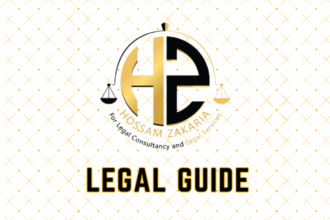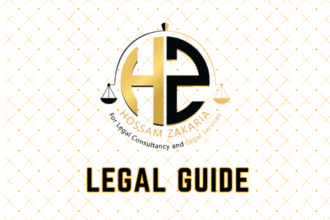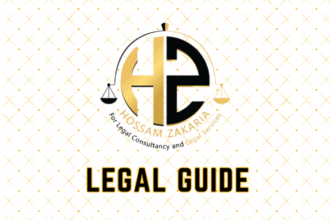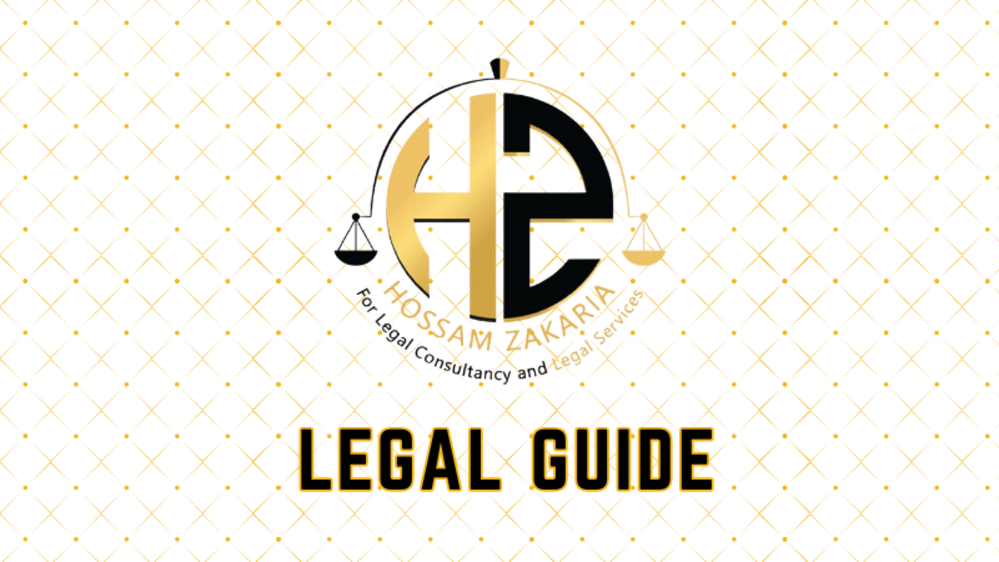Introduction: The Strategic Significance of Annual Audit and Financial Reporting in DIFC
In the dynamic regulatory environment of the United Arab Emirates (UAE), particularly within the Dubai International Financial Centre (DIFC), robust annual audit and financial reporting practices have become not only a matter of compliance but also a foundation for business integrity, transparency, and sustained growth. With the UAE’s ambition to cement its status as a leading global hub for financial services and investment, recent legislative updates and policy reforms have sharpened the focus on financial governance, risk management, and legal accountability. For business leaders, compliance professionals, and legal advisors, mastering the nuances of annual audit and financial reporting within the DIFC legal context is now essential for operational success and reputational assurance.
This article provides a comprehensive legal consultancy analysis on the intricacies of annual audit and financial reporting under the DIFC legal frameworks. Drawing on current legislation, key federal decrees, regulatory guidelines, and practical case examples, this guide empowers UAE-based entities to not only meet their statutory obligations but also strategise for competitive advantage in a rapidly evolving legal landscape.
Table of Contents
- Legal Framework Overview: DIFC and UAE Federal Regulatory Context
- Key Annual Audit and Financial Reporting Obligations
- Recent Legal Updates: 2023–2025 DIFC Initiatives and Federal Reforms
- Comparative Analysis: Old Versus New Reporting Requirements
- Risks of Non-Compliance and Enforcement Trends
- Strategic Compliance Approaches for DIFC-Registered Entities
- Practical Scenarios: Case Studies and Hypotheticals
- Best Practice Recommendations for Sustainable Compliance
- Conclusion and Future Directions
Legal Framework Overview: DIFC and UAE Federal Regulatory Context
The Unique Regulatory Landscape of DIFC
The DIFC is an independent jurisdiction within Dubai, established by Dubai Law No. 9 of 2004 and governed by its own set of civil and commercial laws modeled after common law principles. Financial services and business operations in the DIFC are primarily regulated by the Dubai Financial Services Authority (DFSA), whose powers derive from the DIFC Regulatory Law (DIFC Law No. 1 of 2004). Distinct from mainland UAE corporate governance and accounting provisions, the DIFC framework mandates a higher standard of financial transparency and regular audit obligations tailored for the international business community.
Intersection with UAE Federal Law
While the DIFC operates its own legal and regulatory system, it is still influenced by national-level decrees, such as the UAE Federal Law No. 2 of 2015 on Commercial Companies (as amended) and the Federal Decree-Law No. 20 of 2018 on Anti-Money Laundering. These federal legislations establish baseline financial reporting responsibilities, which are often supplemented and enhanced by DIFC’s more specific requirements.
Key Annual Audit and Financial Reporting Obligations
Statutory Requirements for DIFC Companies
The DIFC Companies Law (DIFC Law No. 5 of 2018) lays down the core audit and reporting requirements:
- Annual Accounts Preparation: Article 147 mandates all DIFC companies to keep adequate accounting records and prepare annual financial statements as per International Financial Reporting Standards (IFRS).
- Appointment of Auditors: Article 149 obligates companies to appoint a DFSA-registered auditor who will review and opine on the financial statements.
- Timely Filing: Audited financial statements must be filed with the DIFC Registrar of Companies within six months of the end of the company’s financial year.
- Public Disclosures for Listed Entities: Entities listed on the NASDAQ Dubai or other recognized exchanges are required to make additional disclosures per DFSA Market Rules.
Regulatory Guidance and Best Practices
The DFSA has issued comprehensive guidance notes and rulebooks, including its Anti-Money Laundering, Counter-Terrorist Financing and Sanctions Module (AML), which emphasize the importance of accurate financial reporting for market integrity and anti-fraud measures. The DIFC Authority offers templates, submission guidelines, and periodic training, easing the compliance burden for entities new to the jurisdiction.
Recent Legal Updates: 2023–2025 DIFC Initiatives and Federal Reforms
Key Updates Shaping Reporting Practices
The DIFC and relevant federal authorities have enacted or proposed several amendments in recent years to address emerging risks and promote transparency:
- DFSA’s Enhanced Governance Code (Effective 2024): Introduces stricter auditor independence requirements, broader director reporting duties, and mandatory adoption of new international accounting standards (see DFSA Consultation Paper No. 147/2023).
- Federal Decree-Law No. 32 of 2021 on Commercial Companies: Expands audit and filing obligations to certain types of partnerships and increases maximum penalties for late submission or misrepresentation.
- 2023 AML Amendments: The UAE Cabinet Decision No. 10 of 2019 (as amended by Cabinet Resolution No. 74 of 2020) reinforces mandatory filing of audited statements for anti-money laundering compliance.
Entities operating in both DIFC and the wider UAE must assess both DIFC and federal obligations to ensure holistic compliance.
Comparative Analysis: Old Versus New Reporting Requirements
| Requirement | Previous DIFC/UAE Law (pre-2021) | Current DIFC/UAE Law (2023–2025 updates) |
|---|---|---|
| Preparation of Annual Accounts | IFRS or locally accepted standards permitted; less detailed guidance | Strict adoption of latest IFRS; enhanced disclosure required |
| Appointment of Auditors | Qualified auditors permitted (local or international) | Mandatory DFSA-registered auditors with independence rules |
| Filing Deadline | Within 6–9 months after year-end (varied by entity type) | Uniform 6-month deadline for all entities; extensions rarely granted |
| Penalties for Non-Compliance | Moderate fines (typically AED 10,000–50,000) | Substantially higher, up to AED 500,000 for repeat offenses; risk of license suspension |
| Reporting for AML Purposes | Recommended, but not uniformly required | Mandatory, subject to spot audits by DFSA and UAE Central Bank |
Visual Suggestion: Penalty comparison chart for pre- and post-2021 regimes
Risks of Non-Compliance and Enforcement Trends
Legal and Financial Consequences
Non-compliance with annual audit and reporting obligations carries significant risks:
- Civil and Administrative Penalties: Violations may trigger fines, suspension or revocation of DIFC registration, restrictions on business activities, and public censure.
- Criminal Exposure: Under UAE Federal Law No. 7 of 2014 on Combatting Commercial Fraud and Decree-Law No. 20 of 2018 on AML, willful misstatement or concealment may result in criminal prosecution and imprisonment.
- Reputational Damage: Public disclosure of penalties and regulatory actions can undermine stakeholder confidence and investor relations.
- Operational Risks: Entities unable to produce timely audited records may forfeit tenders, contracts, and access to finance.
Current Enforcement Priorities
The DFSA and UAE Central Bank have elevated enforcement efforts since 2022, frequently conducting thematic reviews and imposing higher penalties for systemic deficiencies. Cases published in the DFSA’s Enforcement Notices demonstrate an unmistakable trend towards zero tolerance for misreporting or negligence in audit processes.
Strategic Compliance Approaches for DIFC-Registered Entities
Proactive Measures and Internal Controls
- Early Engagement with Auditors: Appoint DFSA-approved auditors before the start of the financial year to align on scope and methodology.
- Automate Financial Controls: Invest in digital accounting systems capable of generating real-time reports and audit-ready records, reducing manual error risks.
- Board Training: Implement director induction and annual CPD on evolving DIFC and federal reporting regimes.
- Regular Compliance Reviews: Schedule biannual compliance audits to identify deficiencies well before statutory deadlines.
Visual Suggestion: Annual audit compliance workflow diagram
Tailoring Strategies to Organizational Scale
- For SMEs: Consider bundled compliance solutions from DFSA-accredited service providers to streamline processes.
- For Multinationals: Run jurisdictional gap analyses to reconcile DIFC, UAE mainland, and home-country requirements.
Practical Scenarios: Case Studies and Hypotheticals
Case Study 1: DIFC Startup Failing to File Timely Reports
Scenario: A fintech startup headquartered in DIFC neglected to submit its 2023 audited accounts within the six-month deadline. The DFSA imposed a penalty of AED 100,000, and as a result, the startup was temporarily barred from onboarding new clients pending remedial action.
Takeaway: Even new or small firms are subject to full reporting oversight, and leniency is not guaranteed for first offenses. Timely scheduling and resource allocation are critical.
Case Study 2: Cross-Jurisdictional Compliance Dilemma
Scenario: A regional logistics group maintains both DIFC and mainland UAE entities. Differs in auditor standards, timing, and AML disclosure created confusion, resulting in inconsistent reports and a warning from DFSA.
Takeaway: Centralized compliance management and unified reporting policies ensure alignment and avoid cross-jurisdictional pitfalls.
Hypothetical Example: Use of Automated Solutions
An established professional services firm in DIFC deploys a cloud-based ERP platform. This move ensures integrated real-time data capture, accelerates the audit process, and minimizes the risk of human oversight—leading to successful compliance reviews and positive regulator feedback.
Visual Suggestion: Compliance technology implementation checklist
Best Practice Recommendations for Sustainable Compliance
- Adopt a calendarized compliance plan, assigning responsibilities and tracking key milestones.
- Leverage official resources such as the DFSA website, DIFC Authority circulars, and the UAE Federal Legal Gazette for authoritative updates.
- Institute periodic staff training to adapt to emerging legal changes and regulatory expectations.
- Engage legal counsel to audit internal practices and documentation, ensuring defensibility during regulatory review.
- Utilize compliance technology for recordkeeping, document tracking, and deadline management.
Conclusion and Future Directions
The intensification of annual audit and financial reporting regulations in the DIFC reflects the UAE’s broader commitment to regulatory excellence, investor confidence, and market integrity. As the financial and business sector evolves towards increased digitization and cross-border integration, compliance requirements will continue to grow in scope and sophistication. Entities operating in the DIFC—and the wider UAE—must embrace a culture of proactive compliance, invest in robust reporting systems, and prioritize ongoing legal education. Not only does this approach mitigate risks of penalties and business disruption; it also positions organizations for sustainable success in the global marketplace.
With 2025 and beyond set to usher in further regulatory refinements, UAE businesses are advised to consult regularly with legal advisors, audit professionals, and regulatory authorities to stay ahead of legal developments and reinforce their market reputation as compliant, responsible players.
For further guidance or customized audit and reporting compliance support, clients are encouraged to contact our legal consultancy team for a confidential consultation.



